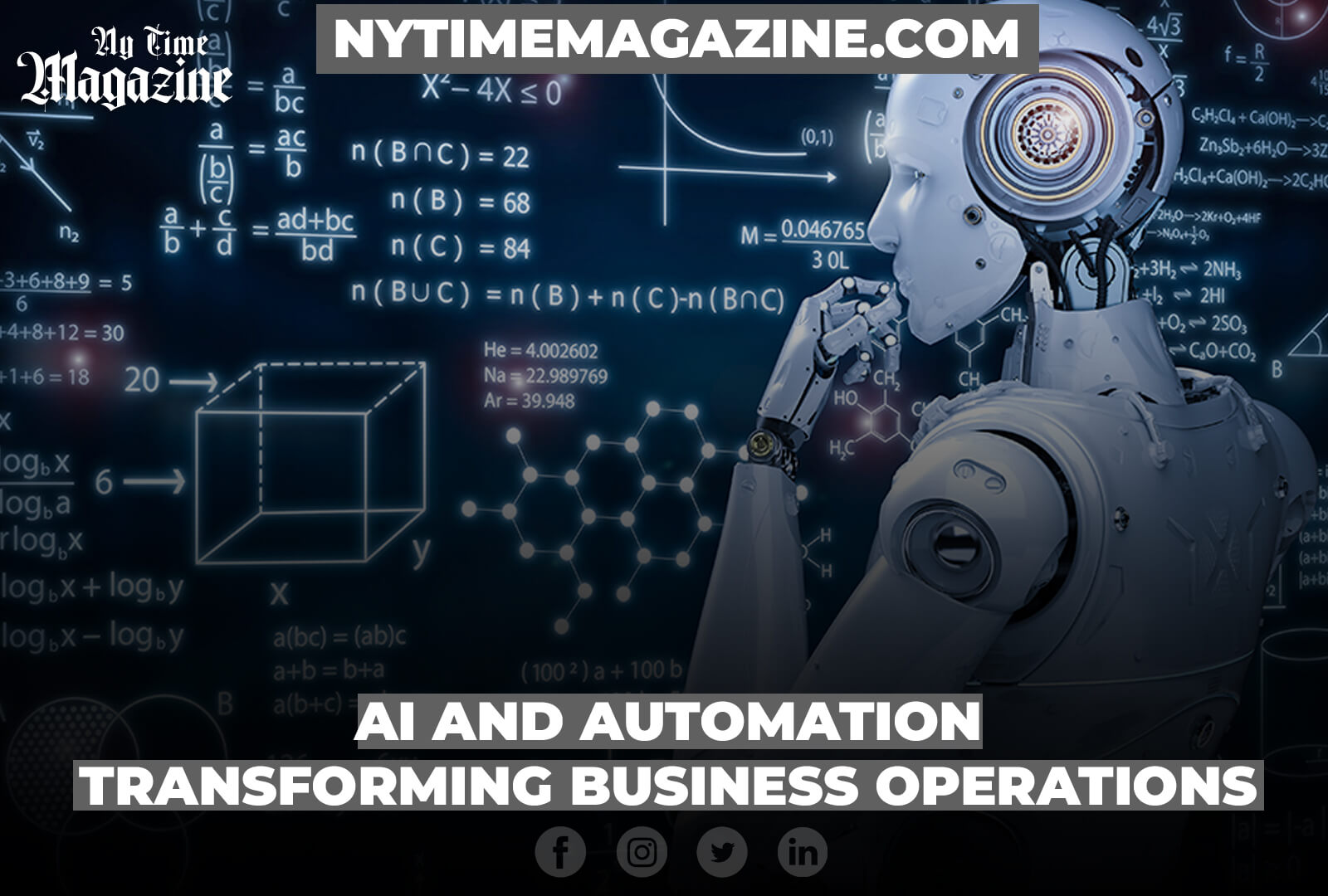AI and automation are revolutionizing how businesses operate. These powerful tools use technology to make tasks easier and faster. Think of AI as smart software that can learn and adapt and automation as using machines to perform jobs without human help. This transformation is making companies more efficient and competitive. It frees employees from repetitive tasks, allowing them to focus on more creative and strategic work. Let’s learn more about the role of these technologies in business!
Contents
The Power of AI and Automation
AI and automation are two distinct but closely related technologies that, when combined, create a formidable force for businesses.
Automation uses technology with the most minor human intervention to perform jobs and procedures. Artificial intelligence (AI) is centred on using machines to perform tasks that often require human intelligence, such as learning, problem-solving, and decision-making. When these two forces unite, they confer several benefits:
- Heightened Efficiency: Automation rids the workplace of manual, repetitive tasks, thereby liberating employees to channel their efforts toward more strategic and imaginative endeavors. Conversely, AI can analyze vast datasets and perform complex calculations at speeds that humans cannot match, leading to improved decision-making and predictive capabilities.
- Cost Reduction: Automation reduces labor costs and the risk of errors, while AI can optimize resource allocation and minimize waste. Together, they contribute to significant cost savings.
- Improved Accuracy: Human errors are virtually eliminated when automated tasks lead to higher precision in various processes. AI can also continuously learn and adapt, reducing the likelihood of mistakes over time.
AI and Automation Key Applications
AI and automation have found applications across various industries, with their transformative capabilities touching virtually every aspect of business operations:
- Manufacturing: In the manufacturing sector, automation is critical in optimizing production lines, reducing downtime, and ensuring consistent product quality. Robots and machines, guided by AI, can assemble products, perform quality checks, and even adapt to changing conditions.
- Supply Chain and Logistics: AI-driven predictive analytics can help businesses forecast demand, optimize inventory, and plan efficient transportation routes. Automation in warehouses, such as autonomous robots and conveyor systems, accelerates order fulfilment.
- Customer Service: AI-powered chatbots and virtual assistants provide 24/7 support, answering customer queries and solving real-time issues. It enhances customer satisfaction and reduces the burden on human customer service agents.
- Financial Services: AI algorithms detect fraudulent transactions, assess credit risk, and automate trading. Robotic Process Automation (RPA) streamlines back-office operations like data entry and reconciliation.
- Healthcare: AI-enabled tools are also transforming medical diagnostics, aiding early disease detection, and helping healthcare providers optimize treatment plans. Automation is present in administrative tasks, such as appointment scheduling and claims processing.
- Marketing and Sales: AI analyzes customer data to personalize marketing campaigns, predicts consumer behavior, and automates email marketing. Chatbots can assist in lead generation and sales conversations.
- Human Resources: Automation is applied to candidate sourcing, screening, and onboarding. AI also helps in assessing candidate suitability and can even predict employee turnover.
Challenges & Considerations AI and Automation
While the potential of AI and automation is undeniable, businesses must navigate several challenges to harness these technologies effectively:
- Data Privacy and Security: Collecting and storing vast amounts of data for AI analysis raises concerns about privacy and cybersecurity. Businesses must also implement robust measures to protect sensitive information.
- Workforce Transformation: Some employees may fear job displacement because automation and AI take over routine tasks. Businesses must provide training and opportunities for upskilling and reskilling.
- Ethical Considerations: AI algorithms can inadvertently perpetuate biases in training data, leading to unfair decision-making. Businesses must also ensure their AI systems are ethically designed and regularly audited.
- Integration Complexity: Implementing AI and automation can require significant changes to existing processes and systems. Moreover, a well-thought-out integration strategy is essential to avoid disruption.
- Implementation Cost: The introductory expenses of adopting AI and automation can be substantial. Businesses also conduct thorough assessments to gauge the return on investment (ROI) and the long-term advantages of such investments.
Conclusion
Automation and AI support companies in being more cost-effective, efficient, and competitive in a changing market. By utilizing these technologies, firms streamline operations, leverage data to make informed decisions and satisfy clients. However, companies must approach AI and automation thoughtfully, addressing challenges related to data privacy, workforce transformation, ethics, integration, cost, and compliance. With the right strategy, AI and automation can propel businesses into a future of unprecedented growth and success.



